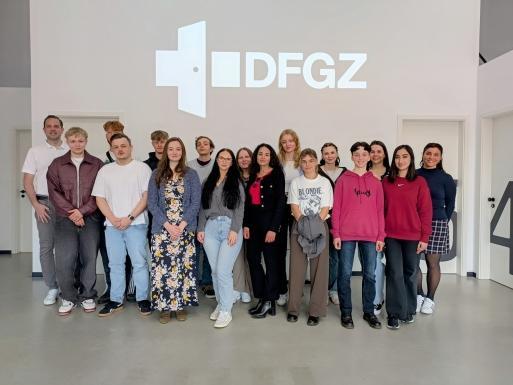Teaching research project on digitally supported primary care
Fewer and fewer doctors are willing to set up in rural areas. GPs in particular are finding it difficult to find a successor. There are many reasons for this, including budgeting, increasing bureaucratization and a weak infrastructure in rural areas. Telemedicine is intended to help close gaps in care and enable patients to receive care close to home, e.g. through the use of audiovisual communication technologies.
For these reasons, the Digital Specialist and Health Center (DFGZ) was established in Olpe. The DFGZ brings nationwide specialist expertise to rural areas with the help of telemedicine and digitally supported diagnostics in order to reduce long distances and waiting times for an appointment.
How these new care options are perceived by citizens and under what conditions and prerequisites they are accessible at a low threshold is the subject of a teaching research project in the bachelor's degree program in Digital Public Health. Under the direction of Dr. Joanna Albrecht and Pinar Tokgöz from the Department of Social Sciences, the students are gaining relevant insights for the design of telemedicine services in rural areas and discussing their findings with experts so that the service structures can be more closely aligned with the needs and requirements of citizens in the future and thus improve accessibility.
The project combines practical research with academic teaching and promotes exchange with regional stakeholders in the healthcare sector. For the kick-off, the students visited the DFGZ and gained exciting insights into the care processes there.
Further links

Students on the bachelor's degree course in Digital Public Health are conducting research as part of a teaching practice project at the Digital Specialist and Health Center in Olpe